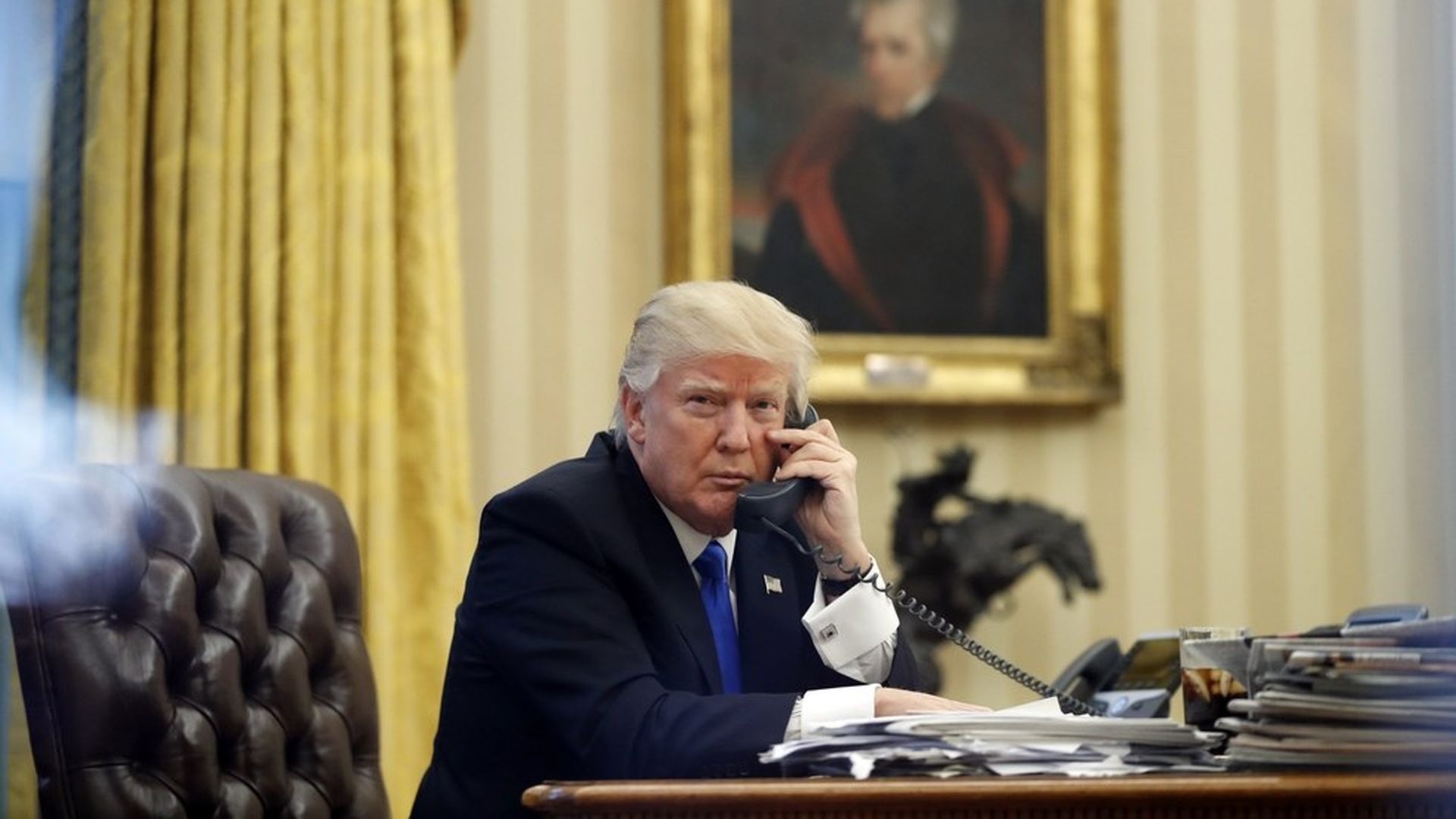Trump's phone call: The view from Australia
Add Axios as your preferred source to
see more of our stories on Google.

You only have time to read one piece putting Trump's Australian phone call in context and this is it: Peter Hartcher is the international editor for the Sydney Morning Herald and one of the most influential journalists in Australia. What he writes will be read by the top foreign policy decision-makers in the Australian government.
While the current conservative government in Australia is utterly committed to the U.S. relationship, some degree of reassessment is inevitable. One of the key questions — and this is a perennial debate in Australian foreign policy — is the extent to which Australia reorients itself away from its dependence on America and toward its Asian neighbors. China is obviously the most disputed part of that equation.
Hartcher calls Trump's shabby treatment of Australian Prime Minister Turnbull "a case of alliance shock" as the relationship between the two countries enters "a zone of exceptional unreliability."
Here's the key section of Hartcher's analysis:
"This need not be a disaster for Australia. If this moment of alliance shock can jolt Australia into doing more for itself, the country might mature from a state of adolescent dependency on America into a more adult state.This is not an argument for dumping the alliance. It's still a valuable asset. It benefits Australia and complicates the calculus of any potential enemy. But unless you think we can bet the country on Donald Trump suddenly developing steady judgement and firm goodwill, this is a time for what Professor Curran calls 'greater Australian self-reliance within the alliance.'Malcolm Turnbull has been acting as if nothing has changed. This is Trump time. A great deal has changed. Wake up, Australia!"
Members of Turnbull's cabinet are spinning that the details emerging from the leak demonstrate the Prime Minister's strength. He's sticking up for Australia against Trump. Senior officials are briefing Australian reporters that calls are going out to the U.S. to smooth things over.
Why this matters: The U.S. is not seen as the stable ally it once was. As one Australian foreign affairs analyst told me: "Pax Americana is all subservient to one's man's ego, leaving China to stand by to hoover up what's left."
Why I know it matters: It was only a few years ago that I covered Australian politics for The Sydney Morning Herald. I stay in close touch with some of the senior figures in politics, business, and media there, and it's been clear since Election Day that they're still flailing about when it comes to Trump.
